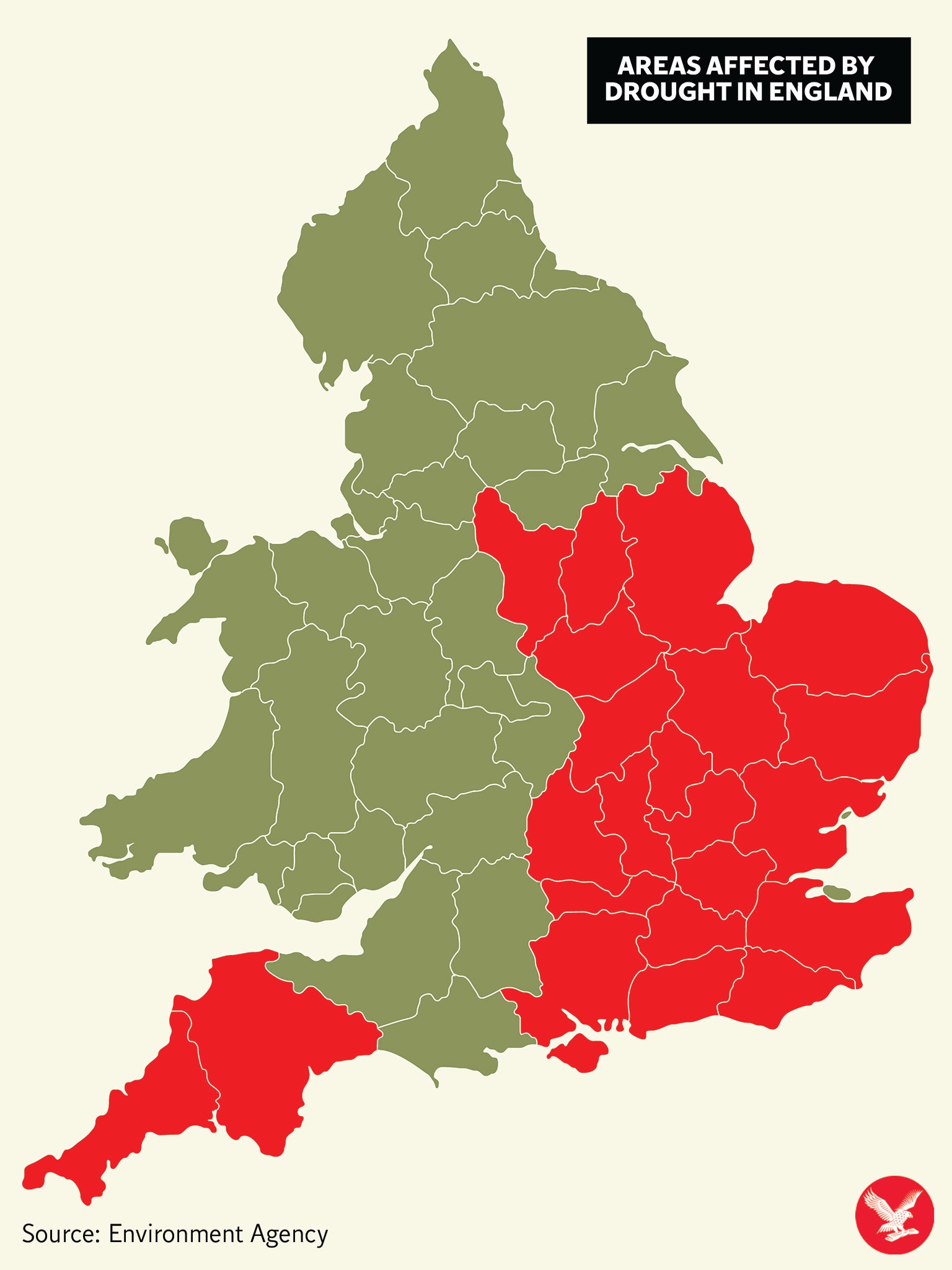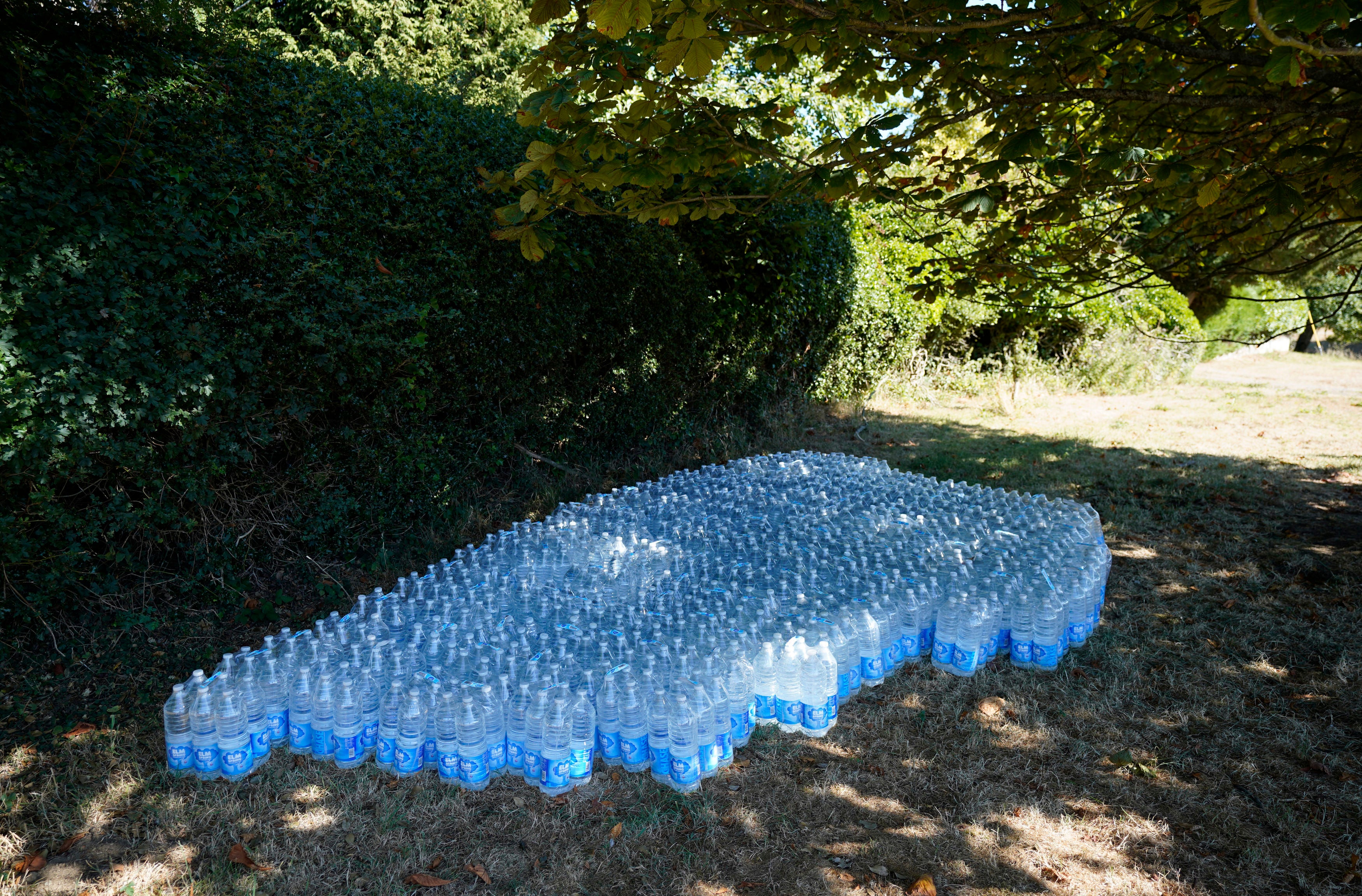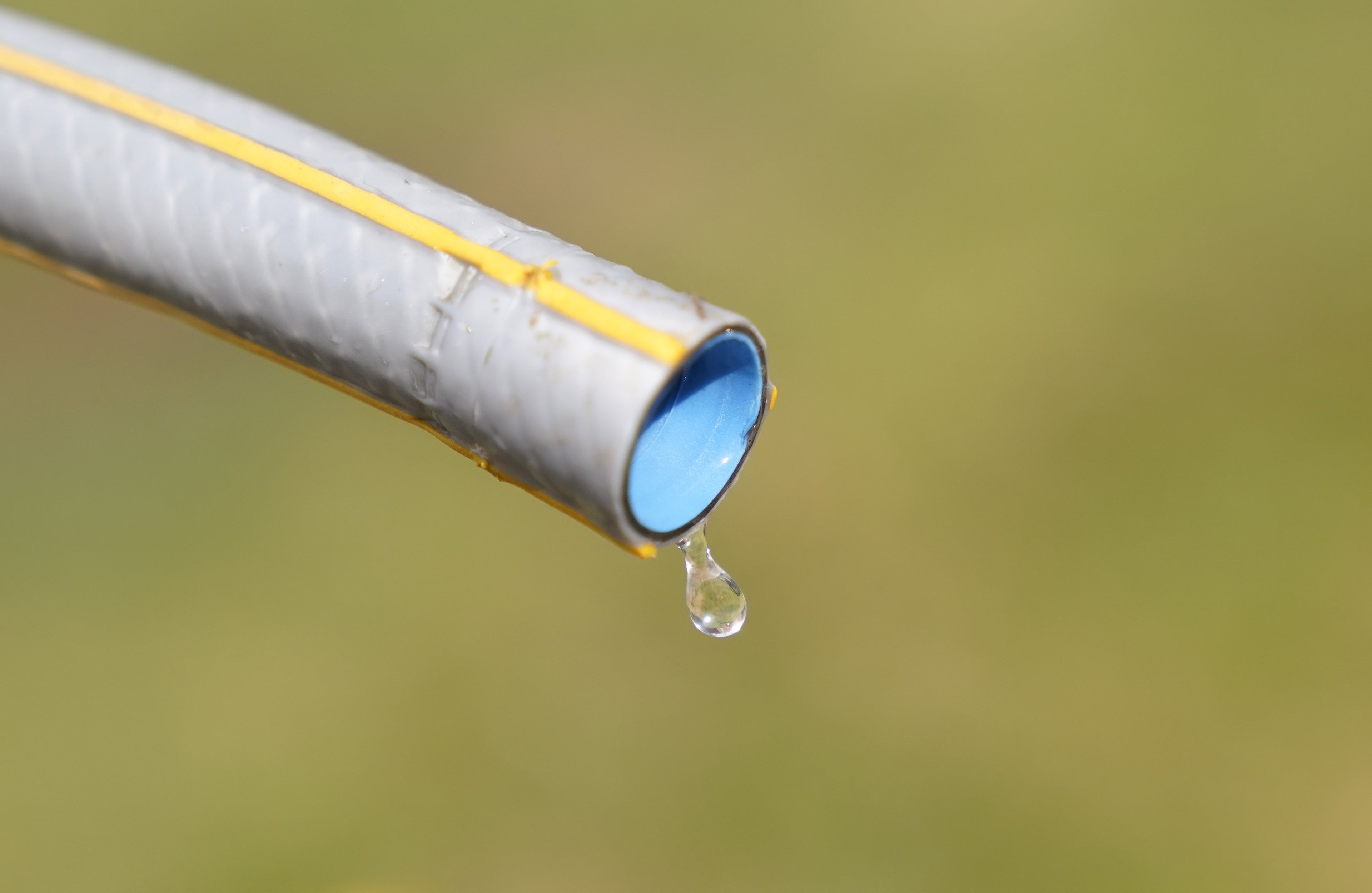Drought declared across swathe of England as temperatures soar in heatwave
Hosepipe bans have been imposed on large parts of the country with millions urged to restrict water use
Your support helps us to tell the story
From reproductive rights to climate change to Big Tech, The Independent is on the ground when the story is developing. Whether it's investigating the financials of Elon Musk's pro-Trump PAC or producing our latest documentary, 'The A Word', which shines a light on the American women fighting for reproductive rights, we know how important it is to parse out the facts from the messaging.
At such a critical moment in US history, we need reporters on the ground. Your donation allows us to keep sending journalists to speak to both sides of the story.
The Independent is trusted by Americans across the entire political spectrum. And unlike many other quality news outlets, we choose not to lock Americans out of our reporting and analysis with paywalls. We believe quality journalism should be available to everyone, paid for by those who can afford it.
Your support makes all the difference.A drought has been declared across a swathe of England following the driest July in the UK since 1935.
Parts of the Southwest, parts of southern and central England, and the East of England are to be moved into drought status, the Department for Environment, Food and Rural Affairs said.
The Environment Agency (EA) confirmed that eight of its 14 areas moving into drought status: Devon and Cornwall, Solent and South Downs, Kent and South London, Herts and North London, East Anglia, Thames, Lincolnshire and Northamptonshire, and East Midlands.
It comes as Britain is in the grip of a four-day extreme heatwave, with temperatures expected to climb to 36C in parts of the country by Sunday.

The persistently dry weather from two strong heatwaves over a period of four weeks has resulted in parched reservoirs and water shortages.
Water minister Steve Double said: “We are currently experiencing a second heatwave after what was the driest July on record for parts of the country. Action is already being taken by the government and other partners including the Environment Agency to manage the impacts.
“All water companies have reassured us that essential supplies are still safe, and we have made it clear it is their duty to maintain those supplies.
“We are better prepared than ever before for periods of dry weather, but we will continue to closely monitor the situation, including impacts on farmers and the environment, and take further action as needed.”

The most recent Environemnt Agency data showed rainfall totals for August have ranged from 12 per cent of the long-term average in north east England to zero per cent in southeast and south west England.
Meanwhile river flow data revealed almost 90 per cent of measuring sites were showing below normal readings, with 29 per cent classed as “exceptionally low”.
Residents in Oxfordshire village ran out of water this week forcing Thames Water to dispatch water tankers and bottled water to the area.

Water companies have also announced several hosepipe bans across England in an attempt to limit water use.
Yorkshire Water is the latest of four water companies across England Wales to enforce the ban, as it does so for the first time in 27 years.
The company’s director Neil Dewis, said: “Our decision to introduce a hosepipe ban is based on the risk that water stocks continue to fall in the coming weeks and the need to be cautious about clean water supplies and long term river health.”
Water UK’s Director of Communications Peter Jenkins, said: “Water companies are already managing the unprecedented effects of the driest winter and spring since the 1970s, and with more hot, dry weather forecast, it’s crucial we be even more mindful of our water use to minimise spikes in demand and ensure there’s enough to go around.

However, water companies have face criticism by the public after reports of widespread wastage through leaking pipes.
Professor Hannah Cloke, Professor of Hydrology, University of Reading, said: “Water companies need to get their act together in fixing leaks faster, and showing that they are making progress, or they will face issues similar to those of the UK government in enforcing lockdown rules during the pandemic.
“It is hard to ask people to make sacrifices when the authorities look profligate.”
Water regulator, Ofwat, said: “Progress has been made in the past few years but there is much further to go, which is why we are pushing companies to reduce leakage, fix their environmental performance and become more financially resilient while keeping bills affordable and helping customers reduce their consumption.
“Where we find that companies have fallen short, we will act - over the last five years, for example, we have imposed penalties and payments of over £250 million.”




Join our commenting forum
Join thought-provoking conversations, follow other Independent readers and see their replies
Comments